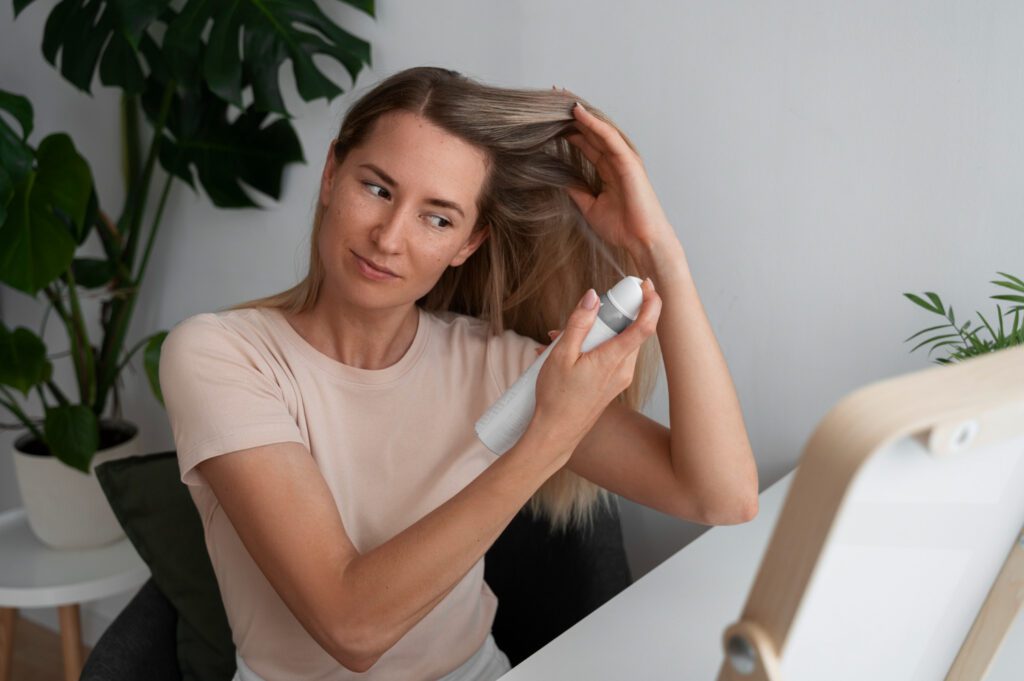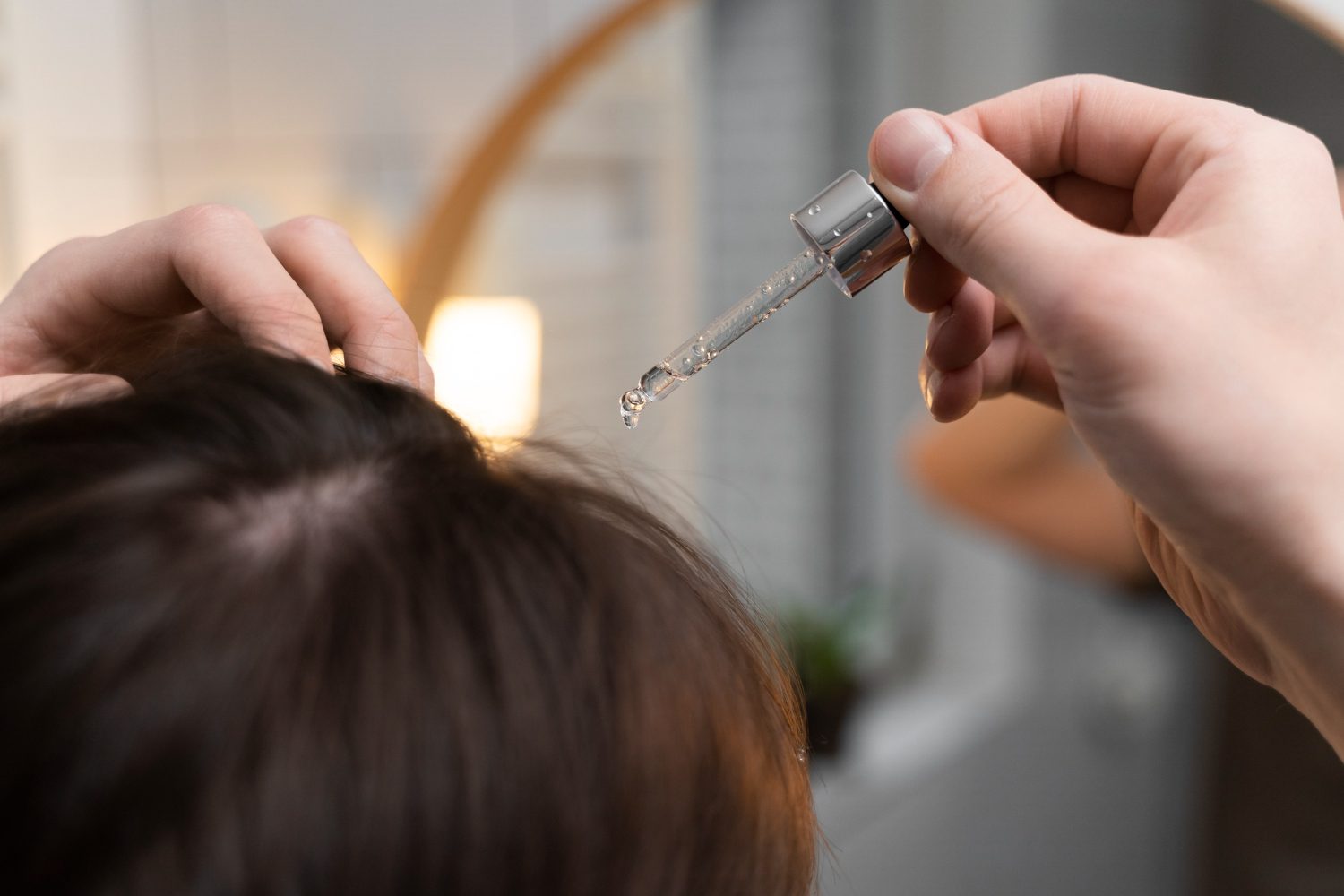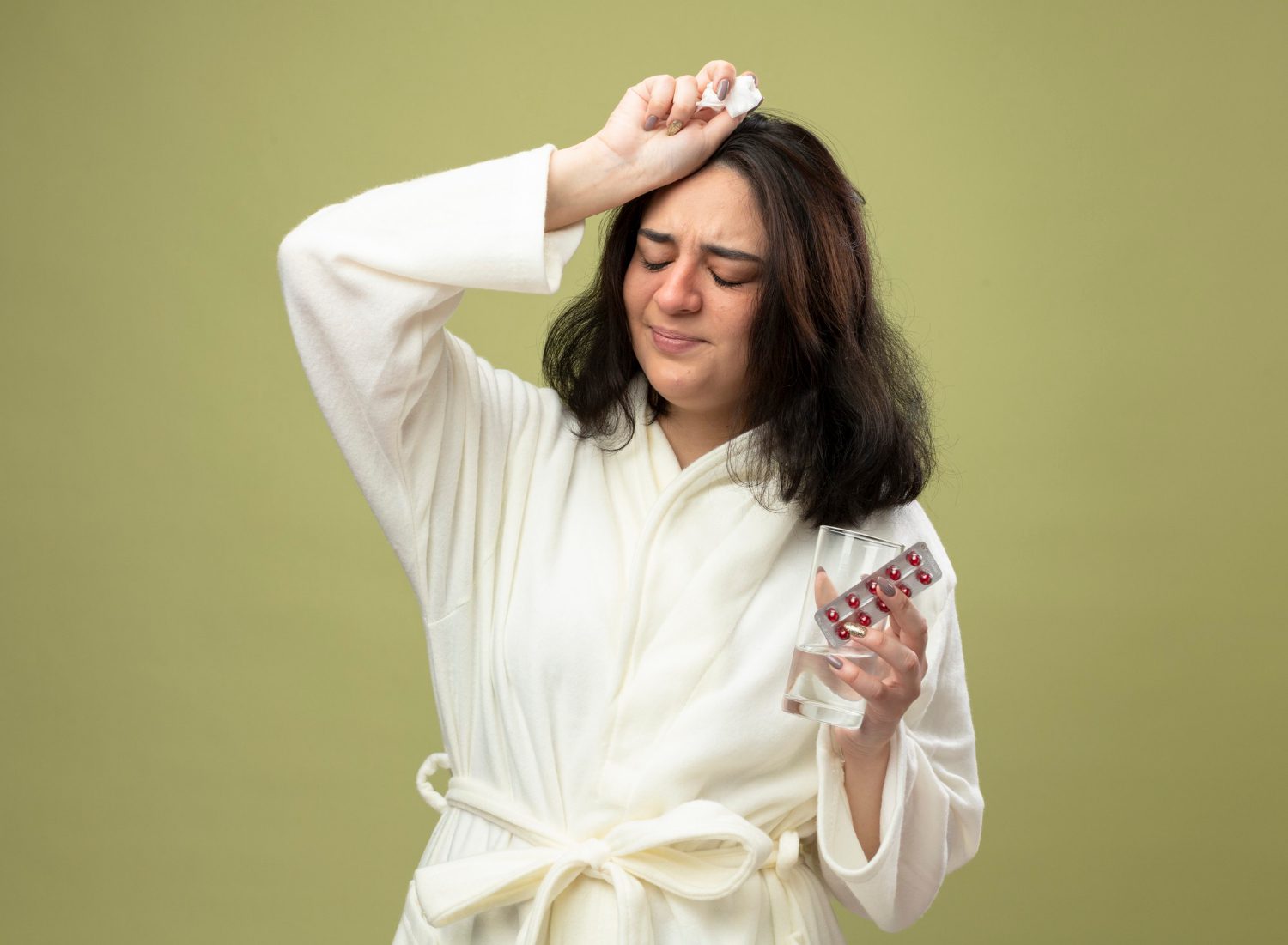
Can Alcohol Really Lead to Hair Loss? Unveiling the Truth
admin
- 0
- 16
Yes, alcohol consumption can lead to hair loss due to its effect on the body’s circulation and nutrient absorption. Alcohol, a popular social beverage, is known to have various negative effects on the body.
One such consequence that often goes unnoticed is hair loss. While this may come as a surprise to many, there is a connection between alcohol consumption and the health of your hair. Excessive alcohol intake can lead to poor circulation and hinder the absorption of essential nutrients required for healthy hair growth.
This article aims to shed light on this lesser-known aspect of alcohol’s impact on the body and provide a better understanding of how it can contribute to hair loss. By recognizing this potential link, individuals can make informed choices regarding their alcohol consumption and take proactive steps to maintain their hair health.

Table of Contents
ToggleThe Relationship Between Alcohol And Hair Loss
Understanding The Link Between Alcohol Consumption And Hair Loss
Excessive alcohol consumption has long been associated with various health issues, but could it also be a potential cause of hair loss? The relationship between alcohol and hair loss is a topic that deserves closer examination. While occasional drinking may not have a significant impact on your hair, heavy and chronic alcohol consumption can potentially contribute to hair loss in multiple ways.
Let’s delve into the effect of alcohol on hair follicles and the role of alcohol-induced nutritional deficiencies in hair loss.
The Effect Of Alcohol On Hair Follicles
Alcohol can disrupt the normal hair growth cycle by affecting the health of hair follicles. Here’s how:
- Inflammation: Excessive alcohol intake triggers inflammation in the body, which can adversely affect the health of hair follicles. Inflamed hair follicles are less likely to produce healthy hair strands, leading to hair thinning and eventual loss.
- Hormonal imbalance: Alcohol consumption can disrupt hormonal balance, particularly affecting hormones like testosterone and estrogen. Imbalances in these hormones can contribute to hair loss by interfering with the natural growth and shedding process of hair follicles.
- Oxygen deprivation: Alcohol impedes the oxygen-carrying capacity of the blood. This reduced oxygen supply to the hair follicles can weaken them and inhibit healthy hair growth.
The Role Of Alcohol-Induced Nutritional Deficiencies In Hair Loss
Alcohol abuse often leads to imbalances in essential vitamins and minerals necessary for healthy hair growth. These nutritional deficiencies can further exacerbate hair loss. Here are a few key points to consider:
- Vitamin deficiencies: Alcohol interferes with the absorption and utilization of vital vitamins, such as vitamin b complex and vitamin d. inadequate levels of these vitamins can weaken hair follicles and impede their ability to produce strong, healthy hair.
- Mineral imbalances: Alcohol disrupts the body’s mineral equilibrium, particularly zinc and iron levels. These minerals play crucial roles in maintaining healthy hair growth. Deficiencies in zinc and iron can lead to hair shedding and even thinning of hair strands.
- Dehydration: Alcohol consumption dehydrates the body, including the scalp. A dehydrated scalp can become dry, flaky, and less conducive to the growth of healthy hair.
It is important to note that hair loss attributed to alcohol consumption is often reversible if the underlying cause is identified and addressed. Reducing alcohol intake, adopting a balanced and nutritious diet, and seeking professional advice can help mitigate the effects of excessive alcohol consumption on your hair.
The Impact Of Alcohol On Hair Health
When it comes to maintaining healthy hair, many factors can come into play. One often overlooked factor is alcohol consumption. Excessive alcohol intake can have a detrimental effect on scalp and hair health. Let’s dive into the effects of alcohol on hair health and explore how it can disrupt the hair growth cycle and lead to hair thinning.
Examining The Effects Of Alcohol On Scalp Health:
- Alcohol can dehydrate the body, including the scalp, causing dryness and irritation.
- It can also lead to dandruff, as excessive alcohol consumption can disrupt the balance of oils on the scalp.
- Alcohol’s inflammatory properties may trigger or worsen conditions like psoriasis or seborrheic dermatitis on the scalp.
How Alcohol Can Disrupt The Hair Growth Cycle:
- Alcohol affects the levels of key hormones involved in hair growth, such as estrogen and testosterone.
- It can increase the production of dihydrotestosterone (dht), a hormone that can shrink hair follicles and lead to hair loss.
- Alcohol can also disrupt the absorption of essential nutrients needed for hair health, such as vitamins b and c, zinc, and iron.
The Connection Between Alcohol Abuse And Hair Thinning:
- Chronic alcohol abuse can lead to malnutrition, which in turn affects the health of hair follicles.
- Alcohol-induced liver damage can impair the body’s ability to metabolize and utilize nutrients, further exacerbating hair thinning.
- Excessive alcohol consumption can disrupt the balance of the hair growth cycle, leading to premature hair shedding and thinning.
To maintain optimal hair health, it is important to moderate alcohol consumption and prioritize a balanced diet rich in essential nutrients. Taking care of your scalp and overall well-being will contribute to healthy hair growth.
Alcohol-Related Nutritional Deficiencies And Hair Loss
Exploring The Impact Of Alcohol On Nutrient Absorption
Alcohol consumption, especially in excess, can have a significant impact on nutrient absorption in the body. This can be attributed to various factors such as decreased appetite, impaired digestion, and a compromised ability of the liver to store and utilize essential nutrients.
Here are the key points to consider:
- Alcohol interferes with the absorption of important vitamins and minerals, including vitamin b12, folate, zinc, and iron.
- The liver, which is responsible for processing and storing nutrients, becomes overwhelmed by alcohol metabolism, leading to nutrient deficiencies.
- Chronic alcohol consumption can damage the lining of the gastrointestinal tract, impairing nutrient absorption and further exacerbating deficiencies.
- Alcohol-related nutritional deficiencies can have a direct impact on hair health, as certain nutrients play a crucial role in promoting healthy hair growth.
How Certain Nutrients Promote Healthy Hair Growth
Healthy hair growth relies on a balanced intake of essential nutrients. Below are the key points to understand how specific nutrients contribute to promoting hair health:
- Protein: Hair strands are primarily made up of protein, which makes it crucial to consume adequate amounts of protein through your diet.
- Biotin: Also known as vitamin b7, biotin plays a vital role in maintaining healthy hair. It helps strengthen the hair shaft and encourages hair growth.
- Zinc: This essential mineral supports hair follicle health and helps regulate oil production in the scalp, preventing hair loss and promoting hair growth.
- Iron: Iron deficiency can lead to hair loss, as it plays a critical role in delivering oxygen to the hair follicles and promoting healthy hair growth.
- Vitamin d: Insufficient levels of vitamin d have been linked to hair loss and thinning. This vitamin plays a role in hair follicle activation.
The Potential Role Of Alcohol-Induced Malnutrition In Hair Loss
Alcohol-induced malnutrition can have a significant impact on hair health and potentially contribute to hair loss. Consider the following points:
- Nutrient deficiencies caused by alcohol abuse can lead to weakened hair strands, making them more prone to breakage and shedding.
- Alcohol-induced malnutrition can disrupt the hair growth cycle, leading to excessive shedding and even the onset of conditions like telogen effluvium.
- One of the primary consequences of alcohol abuse is a compromised ability of the body to absorb and utilize essential nutrients, further exacerbating hair loss.
By understanding the impact of alcohol on nutrient absorption, the role of specific nutrients in healthy hair growth, and the potential link between alcohol-induced malnutrition and hair loss, we gain valuable insights into the complex relationship between alcohol consumption and its impact on our hair health.
It is imperative to prioritize our nutritional needs and moderate alcohol consumption to maintain luscious and healthy locks.
Alcohol, Hormones, And Hair Loss
Many people enjoy having a few drinks every now and then. Whether it’s sipping on a glass of wine after a long day or grabbing a beer with friends at a social gathering, alcohol is often seen as a way to relax and unwind.
However, excessive or regular alcohol consumption can have various negative effects on our bodies. One area that has caught the attention of many is the potential link between alcohol consumption and hair loss. In this section, we will explore the connection between alcohol, hormones, and hair loss.
Investigating The Hormonal Effects Of Alcohol On Hair Growth
- Alcohol has been shown to disrupt the delicate balance of hormones in our bodies, which can have an impact on hair growth.
- Hormones play a crucial role in regulating the natural hair growth cycle, and any disruption can potentially lead to hair loss.
- Excessive alcohol consumption can interfere with the production, regulation, and function of hormones, ultimately impacting the health of our hair follicles.
The Influence Of Alcohol On Testosterone Levels And Dht Production
- Testosterone is a key hormone that plays a significant role in hair growth, particularly in men.
- Alcohol can negatively affect testosterone levels, leading to a decrease in its production.
- Additionally, excessive alcohol consumption can contribute to an increase in dihydrotestosterone (dht) production, a hormone known to contribute to hair loss.
- Dht can bind to hair follicles, causing them to shrink and eventually leading to hair thinning and loss.
The Role Of Hormonal Imbalances In Alcohol-Related Hair Loss
- Alcohol abuse can lead to hormonal imbalances, as the liver becomes overwhelmed with metabolizing alcohol and is unable to regulate hormone levels properly.
- Hormonal imbalances caused by alcohol consumption can disrupt the natural hair growth cycle and contribute to hair loss.
- This hormonal imbalance can result in conditions such as telogen effluvium, where hair follicles prematurely enter the resting phase and shed more rapidly than usual.
Understanding the potential effects of alcohol on hormones and hair loss is essential for those concerned about maintaining a healthy head of hair. While occasional and moderate alcohol consumption may not have significant consequences, excessive drinking over time can pose a risk to hair health.
It is always advisable to consume alcohol in moderation and prioritize overall well-being to promote healthy hair growth.
The Genetics Factor: Alcohol And Hair Loss
Excessive alcohol consumption is known to have various negative effects on the body, but can it also contribute to hair loss? In this section, we will explore whether alcohol can exacerbate hair loss in individuals with genetic predispositions. Let’s delve into the fascinating relationship between alcohol consumption and genes related to hair loss.
Can Alcohol Exacerbate Hair Loss In Individuals With Genetic Predispositions?
Alcohol and hair loss are believed to have a complex interaction, especially when genetics come into play. Here are key points to consider:
- Genetic factors play a significant role in determining a person’s susceptibility to alcohol-induced hair loss. Some individuals may have inherited genes that make them more vulnerable to hair loss when alcohol is consumed excessively.
- Excessive alcohol consumption can disrupt the normal hair growth cycle, leading to hair loss. It can negatively impact the absorption of vital nutrients necessary for hair health, such as vitamins and minerals.
- Alcohol can increase inflammation in the body, which can affect the hair follicles and potentially lead to hair loss. It can also contribute to hormonal imbalances, further aggravating hair thinning or balding in genetically susceptible individuals.
- Individuals with genetic predispositions to hair loss should exercise caution when consuming alcohol. Limiting alcohol intake and adopting a healthier lifestyle can help reduce the risk of exacerbating hair loss.
Understanding the interaction between alcohol consumption and genes related to hair loss:
- Certain genes, such as those associated with androgenetic alopecia (male or female pattern baldness), may respond differently to alcohol consumption. Genetic susceptibility to alcohol-induced hair loss varies from person to person.
- It is important to note that not everyone with a genetic predisposition to hair loss will experience alcohol-induced hair loss. Other factors, such as overall health, lifestyle choices, and individual variations, also play a role.
- Research into the specific genes and mechanisms involved in alcohol-induced hair loss is ongoing. Scientists are continuously exploring the genetic markers and pathways to gain a deeper understanding of this complex relationship.
While alcohol consumption alone may not directly cause hair loss, it can exacerbate genetic predispositions to hair loss in some individuals. It is essential for those prone to hair loss to be aware of the potential risks associated with excessive alcohol consumption and to prioritize a balanced and healthy lifestyle.
Strategies For Preventing Alcohol-Induced Hair Loss
Alcohol consumption is a common part of socializing and unwinding for many people. However, excessive alcohol intake can have detrimental effects on our overall health, including our hair. Hair loss can be a distressing issue, and it’s important to understand the link between alcohol and hair loss.
In this section, we will explore practical strategies for preventing alcohol-induced hair loss and maintaining healthy hair.
Practical Tips For Moderating Alcohol Consumption To Minimize Hair Loss Risk:
- Limit your alcohol intake: Moderation is key when it comes to alcohol consumption. Set limits for yourself and stick to them.
- Alternate alcoholic beverages with non-alcoholic ones: Switching to non-alcoholic beverages can help reduce your overall alcohol intake and minimize the impact on your hair health.
- Pace yourself while drinking: Slow down and savor your drinks, allowing your body time to metabolize the alcohol more effectively.
- Take alcohol-free days: Giving your body regular breaks from alcohol can help minimize the risk of hair loss.
The Importance Of A Balanced Diet And Adequate Nutrient Intake:
- Eat a well-rounded diet: Ensure that your meals include a variety of nutrient-rich foods such as fruits, vegetables, lean proteins, and whole grains. These provide essential vitamins and minerals for healthy hair growth.
- Consume hair-friendly nutrients: Pay attention to nutrients like biotin, zinc, vitamin d, and iron, as they play a crucial role in promoting healthy hair. Include foods such as eggs, nuts, spinach, and salmon in your diet.
- Stay hydrated: Drinking enough water is essential for maintaining overall hair health. Hydration helps in keeping the scalp and hair follicles nourished.
Seeking Professional Help For Alcohol Addiction And Its Impact On Hair Health:
- Consult a healthcare professional: If you’re struggling with alcohol addiction, seeking professional help is crucial. Rehab programs and counseling can assist you in overcoming addiction and improving your overall health, including your hair.
- Understand the impact of alcohol on your hair: Speaking with a healthcare professional or a dermatologist can provide valuable insights into the effects of alcohol on your hair and guide you towards the appropriate steps to take.
By implementing these strategies, you can reduce the risk of alcohol-induced hair loss and maintain the health and vitality of your hair. Remember, moderation, a balanced diet, and seeking professional help when needed are key to ensuring your overall well-being, including the health of your hair.
Frequently Asked Questions Of Can Alcohol Cause Hair Loss
Can Alcohol Contribute To Hair Loss?
Yes, excessive alcohol consumption can lead to hair loss. Alcohol affects the absorption of essential nutrients needed for hair growth and can disrupt hormone levels, resulting in hair loss. Additionally, alcohol can cause dehydration, inflammation, and damage to hair follicles, further exacerbating hair loss.
How Does Alcohol Cause Hair Loss?
Alcohol causes hair loss by inhibiting the absorption of nutrients necessary for healthy hair growth. It can also disrupt hormone levels, leading to an imbalance that affects the hair growth cycle. Alcohol-related dehydration and inflammation can damage hair follicles, resulting in hair thinning and loss.
Is There A Link Between Alcohol And Male Pattern Baldness?
Yes, there is a link between alcohol and male pattern baldness. Alcohol can disrupt hormone levels, specifically increasing the production of dihydrotestosterone (dht), a hormone associated with male pattern baldness. Excessive alcohol consumption can accelerate the hair loss process in individuals already susceptible to male pattern baldness.
Can Moderate Alcohol Consumption Cause Hair Loss?
Moderate alcohol consumption is unlikely to directly cause hair loss. However, excessive alcohol intake can have detrimental effects on hair health, leading to thinning and loss over time. It is important to maintain a balanced and healthy lifestyle to promote optimal hair growth.
Can Quitting Alcohol Reverse Hair Loss?
Quitting alcohol may have positive effects on hair health, allowing the body to regain its ability to absorb essential nutrients and balance hormone levels. However, the extent to which hair loss can be reversed varies depending on individual factors and the severity of the hair loss.
Adhering to a healthy lifestyle and seeking professional advice are essential for optimal results.
Conclusion
To wrap up, the connection between alcohol consumption and hair loss is a complex one. While there is no direct evidence that alcohol directly causes hair loss, its excessive consumption can lead to nutritional deficiencies, hormonal imbalances, and liver damage, which are known to contribute to hair loss.
Additionally, alcohol often impairs judgment, leading to poor lifestyle choices such as neglecting proper hair care. It is important to prioritize a balanced and healthy lifestyle that includes moderate alcohol consumption, a nutrient-rich diet, and stress management to maintain optimal hair health.
If you’re concerned about your hair loss, it’s best to consult with a healthcare professional who can provide personalized advice and treatment options. Remember, maintaining overall well-being is key to ensuring a healthy head of hair.



